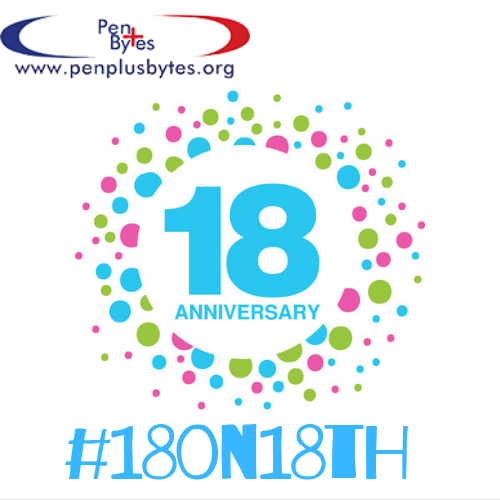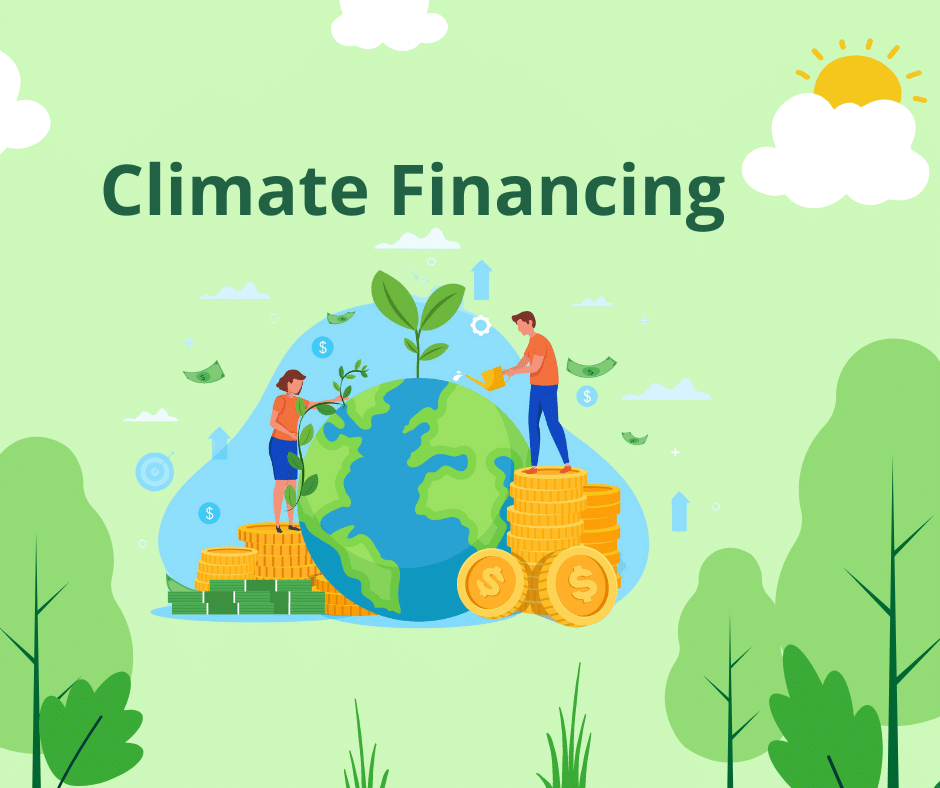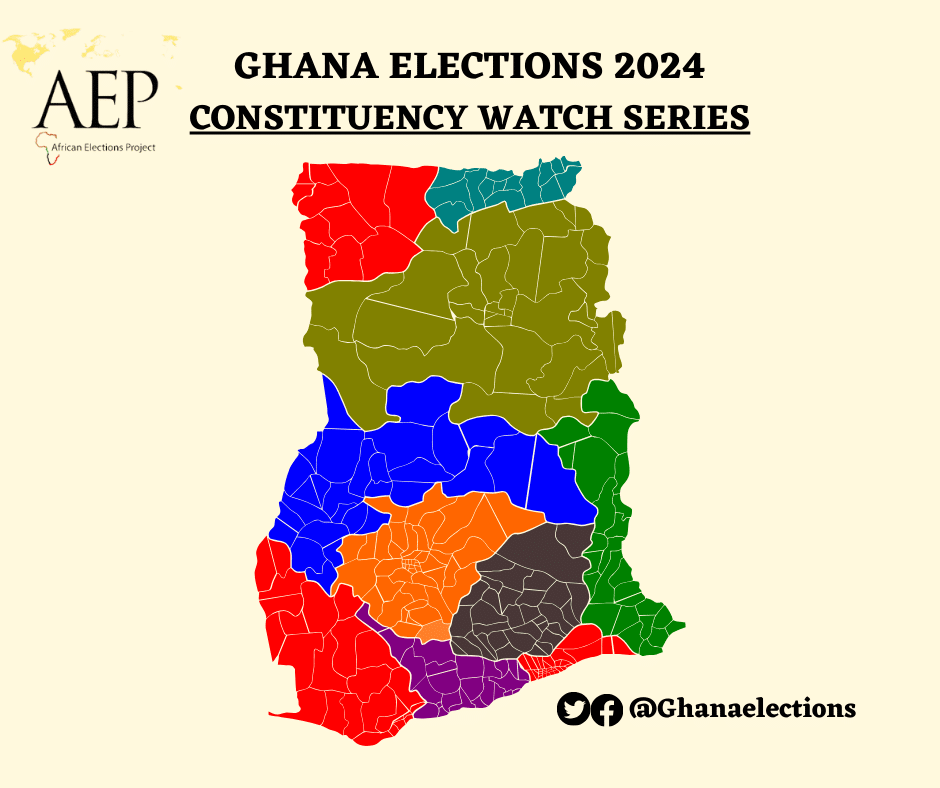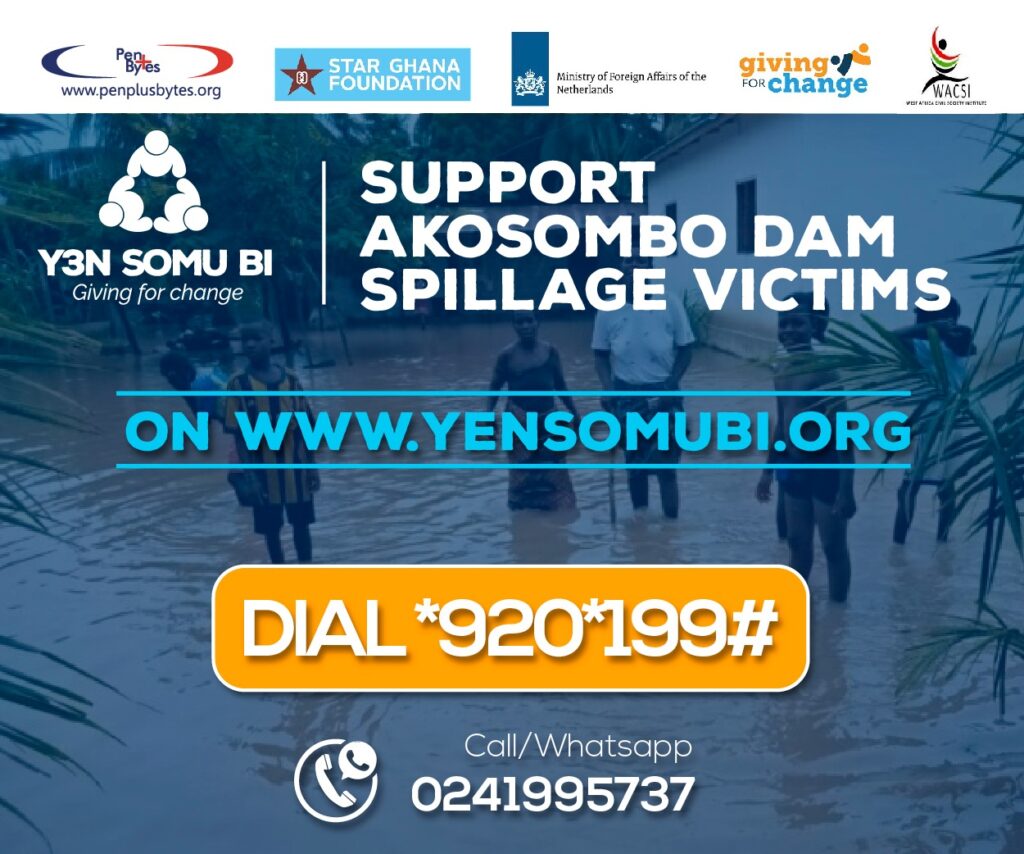On July 18th 2001, Penplusbytes was birthed as the International Institute for Information and Communication Technologies with the sole purpose of empowering the media through the use of ICTs to advance the work of journalism. Within a short period of time over 100 journalists were trained. This led to the creation of one of the largest mailing lists of journalists interested in ICT issues.
In 2002, working with the Ghana Institute of Information Technology (GIIT) and the Ghana Journalists Association (GJA), we organised the first ever national information and communication technology seminar for over 60 journalists in Accra.
In 2004, we organised the first West African Regional media training event for journalists from Ghana, Nigeria and Cote D’Ivoire at the Accra International Conference Centre and the Kofi Annan Centre for ICT Excellence.
In 2006, Penplusbytes pioneered the first ever online course on Introduction to ICT Journalism for participants from Europe, Asia and Africa.
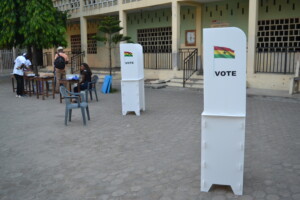 In 2008, the African Elections Project was established with the vision of enhancing the ability of journalists, citizen journalists and the news media to provide more timely and relevant elections information and knowledge while undertaking monitoring of specific and important aspects of governance.
In 2008, the African Elections Project was established with the vision of enhancing the ability of journalists, citizen journalists and the news media to provide more timely and relevant elections information and knowledge while undertaking monitoring of specific and important aspects of governance.
In 2009, the team organised a workshop on elections coverage under our African Elections Project using ICTs in Botswana, Namibia and Mozambique.
Penplusbytes launched the Reporting Oil and Gas project in June 2009 to provide a one stop shop for extractive sector information and knowledge. The project evolved to include training for media persons on how to report on the oil, gas and mining sector.
We have built tech platforms including www.ouroilmoney.org for Africa Centre for Energy Policy (ACEP) under the Ghana Oil and Gas for Inclusive Growth (GOGIG) project using DFID funds. This online platform adaptable to mobile is integrated with WhatsApp, SMS and social media serves as a tool for improving transparency and accountability by providing reports on the country’s petroleum contracts and fiscal management of the sector.
Using hackathons that link programmers, journalists and thought leaders, we have contributed to creating prototypes of solutions which can be scaled up by different stakeholders to influence policy and contribute to achieving over all good governance.
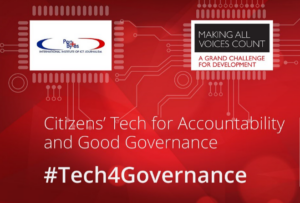 Penplusbytes, with support from Making All Voices Count (MAVC), also implemented a two-year project “Grassroots Open Government Using New Digital Tools” and built a collaborative and integrated tool (ABAN) which enhances communication and information sharing between citizens and the local government in select districts and municipalities in Ghana. The tool enabled citizen’s to actively participate in drawing local budgets and development planning and its implementation.
Penplusbytes, with support from Making All Voices Count (MAVC), also implemented a two-year project “Grassroots Open Government Using New Digital Tools” and built a collaborative and integrated tool (ABAN) which enhances communication and information sharing between citizens and the local government in select districts and municipalities in Ghana. The tool enabled citizen’s to actively participate in drawing local budgets and development planning and its implementation.
This led to more projects in which our tools and online platforms were used to simplify Ghana’s national budget for citizens in 2014, 2015 and 2016 www.myghanabudget.org.
During the general elections in 2016, Penplusbytes hosted the Social Media Tracking centre which made a significant impact in tracking incidents on social media and thereby contributed to an incident-free election in Ghana.
Over the last five years, OSIWA has been supporting our work in the promotion of good governance by funding our Connecting Citizens to Parliament project. Our focus is on the Committee on Government Assurance (CGA) in Parliament which monitors government promises. We enable this committee to be more effective by partnering them with citizens across the country who can help them track the progress of a plethora of promised social interventions and projects by government.
Penplusbytes also has a strong belief in evidence-based programming and expends a huge amount of time in undertaking research to provide continuous streams of evidence for its programming efforts. A significant and ground-breaking research on the impact of fake news on the Ghanaian media – https://penplusbytes.org/fakenews/ created heightened awareness and debate about the phenomenon of fake news and what would be a good way to curb it.
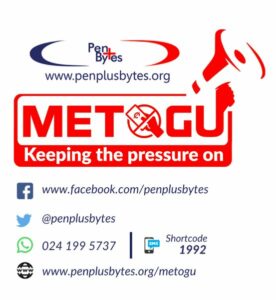 Similarly our METOGU (Keep the pressure on) research project (https://penplusbytes.org/metogu/) which focused on assessing the perception of citizens on the progress made by the government in the fight against corruption, challenged both policy makers and office holders to work in a more conscientious way to tackle the menace of corruption in the public sphere.
Similarly our METOGU (Keep the pressure on) research project (https://penplusbytes.org/metogu/) which focused on assessing the perception of citizens on the progress made by the government in the fight against corruption, challenged both policy makers and office holders to work in a more conscientious way to tackle the menace of corruption in the public sphere.
In the ensuing years, Penplusbytes envisages a more collaborative effort from like-minded organisations, individuals and groups in driving change and promoting effective governance using technology in Africa.

